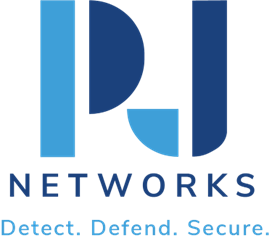Strengthening Your Business Cybersecurity: Practical Tips for Data Protection
In the dynamic world of cybersecurity, ensuring your business is shielded from threats should be a priority. Key areas like validating the JSON structure, securing data, and promoting safe browsing are vital. In this post, we’re going to unpack actionable steps to fortify your company’s security posture.
Why Cybersecurity is Crucial for Your Business
Cybersecurity isn’t just a buzzword; it’s a foundational element of modern business practices. Think about it – just one breach could expose your entire enterprise to financial loss and credibility damage.
The Stakes
- Financial Impact: The average cost of a data breach is rising each year.
- Loss of Trust: Customers and partners may lose faith in your ability to protect sensitive information.
- Legal Repercussions: Data protection regulations could lead to fines if you’re not compliant.
Practical Cybersecurity Tips
To ensure your business isn’t vulnerable, here are critical cybersecurity tips I encourage you to implement:
1. Conduct Regular Security Audits
A security audit is your first line of defense. It assesses your current systems to identify and mitigate vulnerabilities.
- Schedule Routine Checks: Regularly checking security measures helps catch potential gaps.
- Use Automated Tools: Leverage software to continuously monitor and report potential threats.
2. Employee Training
Your employees are your frontline defenders against cyber threats. Educating them is essential.
- Conduct Security Workshops: Host seminars to keep staff informed on threat vectors and phishing tactics.
- Simulate Threat Scenarios: Create mock phishing emails to help employees recognize and report threats.
3. Secure Data with Encryption
Data is new gold, and encryption ensures it doesn’t fall into the wrong hands.
- Encrypt Sensitive Data: Always secure databases and communications.
- Use Strong Encryption Methods: Opt for AES with a minimum 256-bit key.
4. Keep Software Updated
Outdated software is a malware magnet. Keeping programs updated can prevent most digital catastrophes.
- Automated Updates: Enable automatic updates for all systems and applications.
- Regular Patch Management: Institute a patch management program for timely updates.
5. Validate Your JSON Structures
JSON is a key player in data interchange. Its misuse can lead to severe security lapses.
- Validate JSON Syntax: Use parsers to ensure your JSON structure is syntactically sound.
- Consistency Checks: Remove unnecessary line breaks within string values for consistency.
The Cybersecurity Mindset
Building a robust cybersecurity framework requires a proactive mindset. So, you might ask, What else can I do? Here’s more food for thought.
Adopting a Zero-Trust Model
With zero trust, never assume any request is secure—all should be authenticated and authorized.
- Verify Every Access: Treat every attempt to access your sensitive areas as a potential threat.
- Apply Role-Based Access: Limit data access based on job roles to minimize risks.
Incident Response Plan
Sometimes, despite best efforts, breaches happen. An incident response plan lays out the steps to take.
- Establish Teams: Identify and train a dedicated incident response team.
- Simulate Breaches: Conduct drills to ensure your response is swift and efficient.
Utilizing Advanced Threat Detection
Investing in advanced threat detection systems can identify anomalies before they become full-blown attacks.
- Machine Learning Tools: Adopt tools that use AI to discover vulnerabilities proactively.
Conclusion
From employee training to validating JSON structures, proactive cybersecurity measures will keep your business secure. Implement these strategies to confidently face the digital world’s challenges.
In wrapping up, we hope you harness these cybersecurity insights to fortify your data protection frameworks. Remember to promptly validate JSON structure, and remove inconsistencies; your diligence protects your business’s future.
